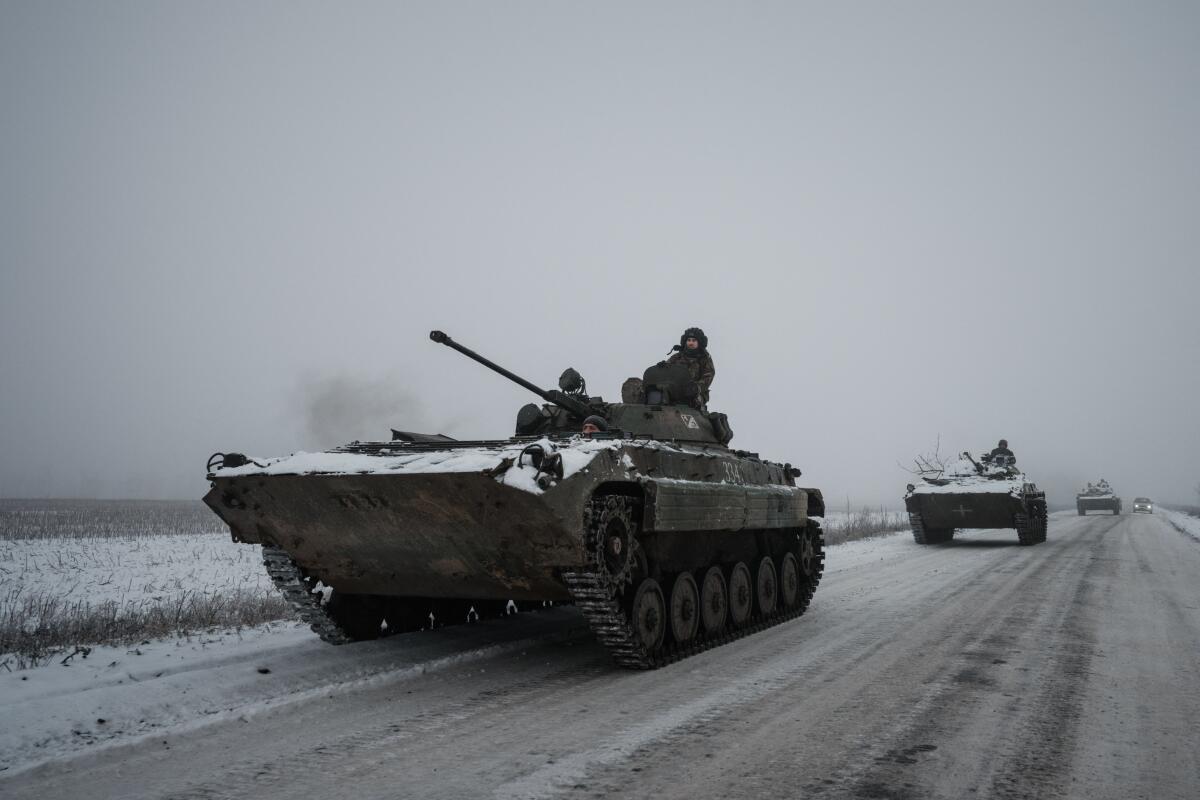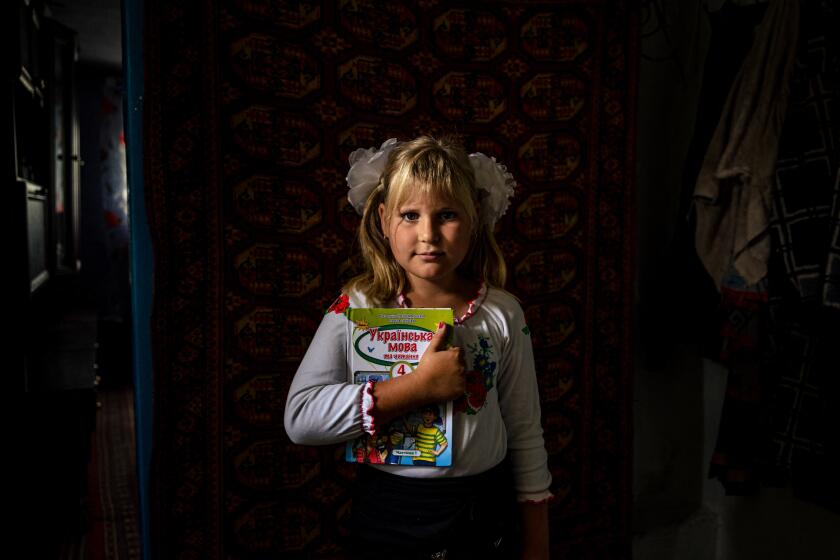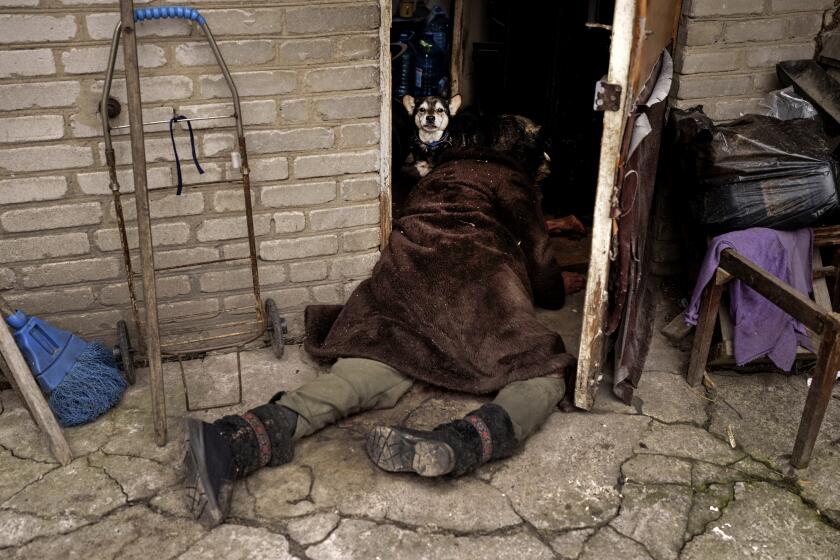Editorial: Biden is right to stay firm on U.S. support for Ukraine

President Biden focused mostly on domestic issues in his State of the Union address Tuesday, but when he did turn to foreign policy he had strong words of support for Ukraine. He assured Ukraine’s ambassador to the U.S., who was in the audience, that “America is united in our support for your country. We will stand with you as long as it takes.”
Biden was right to take credit for uniting NATO and assembling a coalition to assist Ukraine in countering Russian aggression. That effort has continued with recent announcements by the U.S., Germany and the United Kingdom that they would be sending tanks to assist Ukraine in countering an expected surge by Russian forces in the spring.
But some critics worry that the West has been too moderate in assisting Ukraine and make a powerful case that the U.S. and its allies should move quickly to provide even more military assistance to Ukraine.
Putin seeks to erase Ukrainian identity. Replacing the Russian language with their own, Ukrainians are fighting back.
In a recent article in Foreign Affairs, Michael McFaul, a professor at Stanford who served as U.S. ambassador to Russia in the Obama administration, called for a shift away from what he called an incremental approach that “is likely to only prolong the war indefinitely.”
“Instead, in 2023, the United States, NATO, and the democratic world more broadly should aim to support a breakthrough,” McFaul wrote. “This means more advanced weapons, more sanctions against Russia, and more economic aid to Ukraine. None of this should be doled out incrementally. It needs to be provided swiftly, so that Ukraine can win decisively on the battlefield this year.”
Among other proposals, McFaul suggested that “Ukrainian pilots also should begin training to fly F-16 fighter jets.” The Biden administration has been reluctant to provide F-16s to Ukraine, and administration officials have suggested that it is more likely that Ukraine would obtain the fighter jets from European countries. On Wednesday, in a speech to the British parliament, Ukrainian President Volodymyr Zelensky pleaded for fighter jets. (Prime Minister Rishi Sunak said that Britain would train Ukrainian fighter pilots, and the British government said it was “actively looking” at whether Ukraine could be sent Western jets.)
Biden is right to assure Ukraine that the U.S. will stand with it for “as long as it takes,” and if it’s possible to expedite military assistance he should do so. That doesn’t mean the U.S. and its allies shouldn’t be cognizant of the possibility that Putin might overreact, including by resorting to nuclear weapons. So far, despite some ominous talk, Putin has not moved to use nuclear weapons.
Even if atrocities in Ukraine do not lead to criminal convictions, they strengthen the case for increasing sanctions against Russia.
Nor does it mean that the U.S. and its allies should close the door on the possibility of a negotiated end to the war. Zelensky has proposed a peace plan that includes the recovery by Ukraine of all the territory Russia has captured or purported to absorb, including Crimea, which Russia illegally annexed in 2014. (The U.S. has condemned the annexation of Crimea but has focused on helping Ukraine regain territory seized by Russia in the last year, though that policy may change.)
Whether a future peace agreement might also include some concessions to Russia — for example, autonomy for pro-Russian inhabitants of eastern Ukraine — is a question that could be addressed in the future. For now, Ukrainians understandably are focused on defending themselves.
The Russian invasion of Ukraine has posed a complicated problem for the U.S. and NATO alliance. Ukraine is not a NATO member, and the U.S. and its allies rightly have ruled out using NATO troops to defend it. But Putin’s unprovoked and brutal aggression against Ukraine raises the specter of a Russian attack on current and future members of the alliance. It also threatens an international order in which nations respect the territorial integrity of their neighbors.
As Under Secretary of State Victoria Nuland noted in testimony before the Senate last month, “Ukraine’s fight is about so much more than Ukraine.” That reality requires an even more urgent effort to reverse Russian aggression.
More to Read
A cure for the common opinion
Get thought-provoking perspectives with our weekly newsletter.
You may occasionally receive promotional content from the Los Angeles Times.












